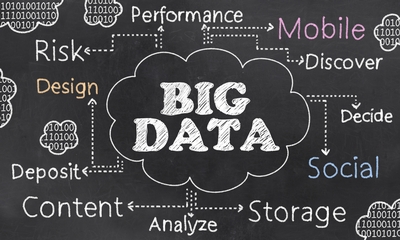The agency world has changed markedly in the last few years, thanks to the rise of marketing automation software (Adobe Marketo, Eloqua, and Hubspot, to name a few). Marketing automation generates a tremendous amount of data, most of it captured in a data silo for each application. But siloed data makes it difficult to analyze trends and gain big-picture insight when you’re looking at data spread across multiple applications.
How can agencies extract value for their clients from all that data?
The answer, of course, is big data, one of the hottest technology trends of this decade. Wikipedia defines big data as, “An all-encompassing term for any collection of data sets so large and complex that it becomes difficult to process using traditional data processing applications.”
In lay language, big data is summarized in the three Vs:
- Increased volume (amount)
- Increased velocity (speed of data in and out)
- Increased variety (data types and sources).
Aggregating big data through siloed marketing automation clearly provides big opportunity, but agencies must address four aspects before they launch their first big data project: People, technology, data and project management. Here’s a rundown on each one.
1. People
Big data requires specialized and highly-skilled IT experts and data scientists. These resources can be expensive because they’re in short supply.
However, if your agency is heavily into data analysis already, you have a head start in terms of the analysts and analytic software (SPSS, SAS, Teradata, etc.) at your disposal. If your agency already runs a data warehouse, you’re poised for a quicker and easier road to success than a business starting from scratch.
For IT specialists, early adopters of big data generally begin with IT specialists installing free, open source Hadoop on a spare machine in the lab and then figuring out how it works. Poke around and talk to the people in your IT and data analysis departments—you might have more homegrown talent than you realize.
2. Technology
Here’s the decision: Do you buy enough big machines to create a Hadoop cluster in your data center, or do you go to a big data cloud provider (their infrastructure, your data, and applications) such as Qubole, Altiscale, Amazon Web Services, Rackspace, etc.?
If you’re just beginning to explore a big data initiative, a cloud-based platform provides the strongest benefits, just as online project management software does. Even if you eventually build your own cluster, put your pilot in the cloud because it’s cheaper and you can launch your first project sooner to evaluate your proof of concept. You might eventually decide it’s more cost effective to purchase and run your own Hadoop cluster, but that decision can wait.

3. Data
As you execute big data projects for clients, you’re going to have to decide on where you’ll get the data. There are data services you can purchase from, but in order to get the most (and truest) value for any specific client, you’ll have to access that client’s proprietary data in your big data set. Unless you’re already running the marketing automation apps for your client, you probably don’t have the account’s critical marketing data. Have a conversation with your clients about how you can use their data to provide the best results for them.
Data governance issues will arise. Prepare to address issues like: What can clients share under their privacy policy? How will you anonymize data? Can you commingle one client’s anonymized data with another’s?
4. Project management
Big data initiatives have the best chance of earning executive sponsorship when there’s a strong project management process supporting them. Harvard Business Review blogger Tom Davenport writes to this in his article, What Makes Big Data Projects Succeed.
Will Kelly, in his LiquidPlanner blog post 8 Ways to Become a Big Data Project Manager, says that big data projects must coordinate the skillsets of many different disciplines and individuals. And who better to wrangle this than a dedicated project management professional?
Despite these complexities, marketing agencies have good potential to provide big data aggregation and analytic services—in other words, providing their clients with important market insight. This past September, I spoke to a cloud-based big data service that had seriously considered its opportunity in the marketing analytics area; instead, they decided it was too early to pursue.
Consider this reaction as both a validating and motivating force to get a foothold on big data now instead of catching up later. For a venture-funded startup that must scale revenue rapidly by pursuing high-growth segments, this marketing automation market isn’t ready to explode. If you’re an established marketing agency with an existing customer base, you’re in a good position for big data success.
The big data industry is only going to grow. And being an agency that plays in this field takes some careful consideration, strategizing and preparation. Address these four aspects to big data marketing and you’ll be ready to pursue big data projects profitably.
Tell us how you’re incorporated big data into your agency offerings.







